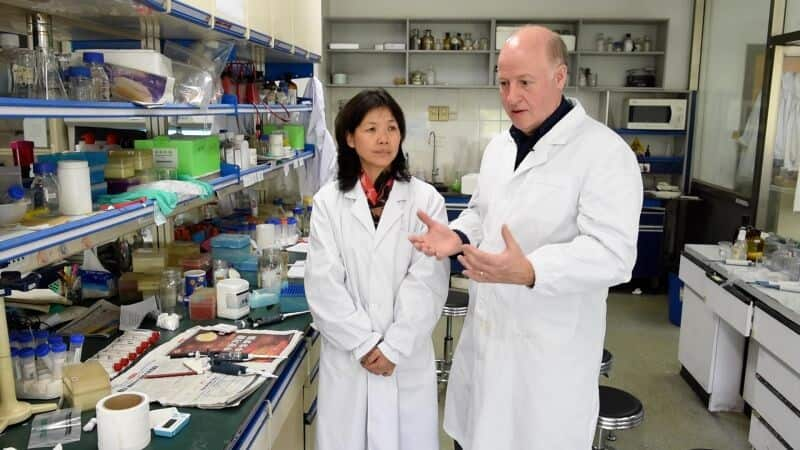
New bat coronavirus found in China can infect humans: Study
What's the story
Chinese scientists have identified a new bat coronavirus, HKU5-CoV-2, that could infect humans. The virus employs the same cell-surface protein, ACE2, to enter human cells as SARS-CoV-2—the virus responsible for COVID-19. The discovery was made by a team of scientists from the Guangzhou Academy of Sciences, Wuhan University, and the Wuhan Institute of Virology that was led by renowned virologist Shi Zhengli.
Virus details
HKU5-CoV-2's lineage and characteristics
The newly discovered virus, HKU5-CoV-2, has its origins in the HKU5 coronavirus first detected in the Japanese pipistrelle bat in Hong Kong. It is a member of the merbecovirus subgenus, which also includes the virus that causes Middle East Respiratory Syndrome (MERS). Notably, this new bat coronavirus carries a feature called the furin cleavage site that allows it to enter cells through the ACE2 receptor protein.
Lab results
Laboratory findings and potential risks of HKU5-CoV-2
In lab experiments, HKU5-CoV-2 was found to infect human cells with high ACE2 levels. This happened in test tubes and human intestine and airway models. However, HKU5-CoV-2 doesn't enter human cells as easily as SARS-CoV-2, researchers said. The study published in Cell said this new virus has much less binding affinity to human ACE2 than SARS-CoV-2, indicating "the risk of emergence in human populations should not be exaggerated."
Market impact
Expert opinions and market reactions to the discovery
However, Michael Osterholm, an infectious disease expert at the University of Minnesota, described reactions to the study as "overblown." He cited increased immunity in populations to similar SARS viruses compared with 2019. Despite these assurances, the discovery has influenced financial markets with shares of COVID-19 vaccine makers like Pfizer and Moderna seeing increases.